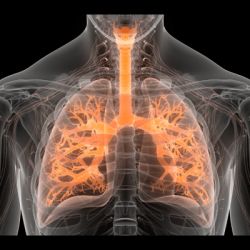Breast Screening Programmes in the UK extend lives, but at a cost, according to the results of an independent review published in The Lancet on 30 October 2012. The Review estimated that while screening prevents about 1,300 breast cancer deaths per year, it can lead to about 4,000 women each year aged 50-70 in the UK having treatment for a condition that would never have troubled them
The expert Panel’s report, commissioned by Cancer Research UK and the Department of Health, concluded that for each breast cancer death prevented, about three overdiagnosed cases will be identified and treated. Overdiagnosis is defined as cancers detected at screening that would not have otherwise become clinically apparent in the woman's lifetime.
As it is not possible for either the woman or her doctor to know which screen-detected cancers are potentially fatal and which represent overdiagnosis, all will usually be treated, with the accompanying effects on quality of life and psychological well-being.
Of the 307,000 women in the UK aged 50-52 who are invited to begin screening each year just over 1% would have an overdiagnosed cancer in the next twenty years and less than 0.5% will have their life extended in the next twenty years.
Panel Chairman, Sir Michael Marmot, professor of epidemiology and public health and Director of the Institute of Health Equity at University College, London, said, "It was extremely important to look at all the available evidence surrounding both the achievements and shortcomings of the UK Breast Screening Programmes in the wake of increasing debate over their effectiveness.
“The Panel concluded that the screening programmes have contributed to reducing deaths from breast cancer in women. But they have also resulted in some overdiagnosis among women who go for screening. It is now vital to give women information that is clear and accessible before they go for a mammogram so they can understand both the potential harms and benefits of the process.”
Maggie Wilcox, a breast cancer survivor and panel member, said: “It was important for a patient to be part of the proceedings during this review. Women have a right to ask questions and have them answered in way that makes sense to them. The key to the outcome of this review is to devise a way of explaining the pros and cons of breast screening to all women in a way they can understand and to arm anyone who is diagnosed with breast cancer with information that allows them to discuss treatment options with their consultant.”
The panel of experts reviewed the evidence (mainly randomised controlled trials) for the benefits and harms of breast cancer screening in the UK. The review was a response to a decade or more of controversy over the benefits of screening, which may have caused confusion for women invited to attend for breast screening.
The conclusions of the review are based on analysis of 11 trials that all took place more than 20 years ago. The panel acknowledged the studies had limitations, not least because of their age, but decided the evidence was strong enough to conclude that women invited for screening have a relative risk of dying from breast cancer that is 20 percent less than those who are not invited.
In the UK women aged 50—70 years have been invited to screening every 3 years through the NHS Breast Cancer Screening Programme since 1988. The Panel found that routine breast screening leads to a 20% relative risk reduction compared with no screening. This means for every 235 women invited for screening, one breast cancer death will be prevented, representing 43 breast cancer deaths prevented per 10,000 women aged 50 years invited to screening for the next 20 years.
19% of breast cancers diagnosed in women invited for screening would not have caused any problem if left undiagnosed and untreated (a rate of 129 per 10,000 women). However, owing to the scarcity of reliable data in this area, more research is needed to accurately assess the magnitude of overdiagnosis. The Panel also considered how women feel about the available evidence: many women believe the balance of benefits to risks is worthwhile.






















